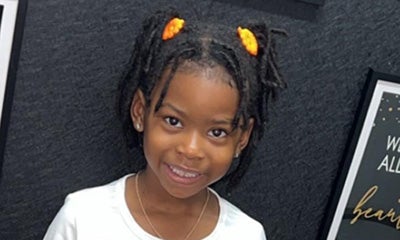Coronary Fistula/Open-Heart Surgery
Six-year-old August Williams' mom describes her as being full of life, constantly curious, and super smart. What people might not assume about August is that she had open-heart surgery when she was 18 months old.
When August was born, nurses thought she had a heart murmur, so she was referred to specialists for further testing. At 3 days old, she received an echocardiogram, which showed an extra connection. Blood was being pumped through her right coronary artery that would normally nourish the heart muscle downstream but was instead dumping back into one of her heart chambers. Because there was so much blood flowing back into August’s heart, several parts of her heart were enlarged. Her doctors noted that her heart sounded like a washing machine.
Doctors realized there was a small hole in her heart, and she was diagnosed with a right coronary artery fistula, which is when the heart has an abnormal connection and negatively affects blood flow. This is a rare diagnosis, but luckily doctors at Children’s were prepared to start treatment.
When she was 18 months old, doctors decided to schedule a procedure to insert a catheter to attempt to close the fistula. However, the procedure failed, and doctors made the decision to perform open-heart surgery. August’s mom, Talaiya, said she was in shock and the hardest part was not being able to take August’s pain for her. “The unknown was the scariest for us,” Talaiya said. Doctors successfully closed the hole in August’s heart with a patch.
“Dr. [Walter] Johnson spent a couple of days printing out pictures, he drew diagrams, he was as descriptive as he could be, just so that I could understand everything that was going on,” Talaiya said. “I didn’t even have to ask him—if it was a medical term, he made sure to break it down.”
After her surgery, August was transferred to the cardiovascular intensive care unit (CVICU). On the third day, she was walking around. “You wouldn’t have known, she was her normal regular self, which surprised me,” Talaiya said.
Nurses quickly became like family for the Williams family and made sure they were taken care of both physically and emotionally. “In the hospital, time stops,” Talaiya said. “It’s second for second. Any type of question I had, the nurses would sit down and have conversations with me.” August was able to go home seven days after her open-heart surgery.
Because of the incredible community August’s family built during her stay, Talaiya decided to become a social worker at Children’s of Alabama just one year after August’s surgery.
Treatment for August includes blood thinners for the rest of her life and yearly visits to Children’s of Alabama. Otherwise, Talaiya says she will be able to live a normal, colorful life. She believes the sky’s the limit for August.











